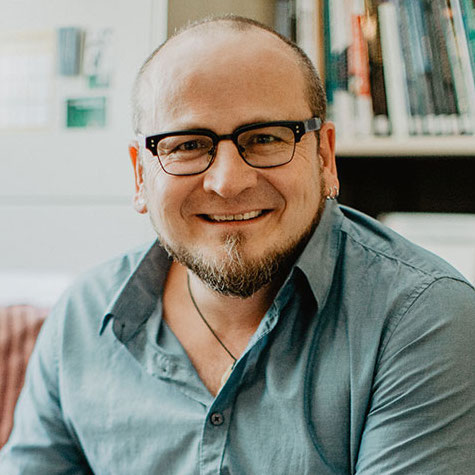As a mostly able-body heterosexual, middle-class white cisgender male, my life oozes with privilege. I am acquainted with the sanctimonious anger of Brett Kavanaugh, the smug sexism of Mark Driscoll, the pompous arrogance of Donald Trump, the assumption-rightness of John Piper, and the murderous racism of Derek Chauvin. Yet, Jesus indicates that with God’s help, even I might be squeezed through the eye of a needle.
All summer long The Seattle School core faculty have engaged a process of deep listening, ongoing dialogue, and self-examination about race and antiracism through weekly blogging. We’ve taken turns writing posts, and engaging a peer review process with each other’s work so as to stimulate deeper and even more thoughtful reflection about white-body supremacy and what it may look like for our school to become a truly anti-racist1 learning community.
My colleague Dr. Ron Ruthruff sometimes challenges me, “You don’t know! And you can’t help!”2 I love him for this. I need lots of support decentering the lie that, “I know and can help” . . . or even worse that I “know better” and “they need me.” Whiteness Christianity groomed me to anticipate my superiority in nearly every situation. When I’m honest, it kinda felt good to choose to believe God predestined me as a uniquely vital Divine instrument for the salvation of others. Turns out this is a white lie. I’ve been unlearning this theological invention for decades now. I may have been discipled into whiteness Christianity, but I am in the process of being saved from myopic, whiteness evangelical religion.
Whiteness divides. Segregation is the goal of whiteness, and completely antithetical to the Gospel. From Genesis to Revelation, we see God reconciling all facets of the relational ecosystem that is creation to each other and to the Divine in Christ. Jesus summed up all scripture saying, “Love God and love your neighbor as yourself.”3 Love and segregation are incompatible; as are love and black-body racism. The scandal of Jesus’ words is that love is always located in the real. Love is particular. It is needful of the other; it’s relational and proximate; never ideological, or theological, or even religious.
My emerging sense is that we cannot separate love of self from love of neighbor or from love of God. These three loves are interpenetrating, interanimating, inseparable… perichoretic, maybe? If you were to really love your neighbor, you would be loving God and yourself. If you were to really love God, you would be loving yourself and your neighbor. Moreover, if you were truly able to love yourself, you would already be loving God and loving your neighbor, so… “who is your neighbor?”4
Dr. Willie James Jennings writes that “Segregated spaces must be turned toward living places where people construct together an every day that turns life in health-giving directions. Overcoming whiteness begins by reconfiguring life geographically so that all the flows work differently…”5 Here are my questions for us as a school: Where are we? Who is already here? And how might we discover God’s Shalom in relation with our neighbors? How might our “flows” work differently?
So much more needs to be said; even more needs to be done and undone. Like the man who came to Jesus you’ll read in my paraphrase of Matthew, I am infected by whiteness… as are many of the systems “necessary” for The Seattle School to operate. Systemic and personal racism have no place in God’s kingdom. The Gospel of Jesus Christ necessitates our school’s work and my personal work to be utterly anti-racist. A practical way to begin is tangibly and holistically loving God by loving your neighbor as yourself while together discovering how to reconfigure life geographically. As Jesus suggests, humanly speaking, it may seem impossible. “But with God…”
Peace,
Dwight
I’ve reimagined this passage, Matthew 19:16-26, within this context, and written it below:
“A highly privileged, White seminary professor came to Jesus with this question: “Teacher, what good thing must I do to know eternal life?”
“Why ask me about what is good?” Jesus replied. “There is only One who is good. But to answer your question—if you want to receive eternal life, keep the commandments.”
“Which ones?” the White professor asked.
And Jesus replied: “‘You must not murder. You must not commit adultery. You must not steal. You must not testify falsely. Honor your father and mother. Love your neighbor as yourself.’”
“I’ve done all that,” the White man replied. “What’s left?”
Jesus told him, “If you want to give it all you’ve got, go interrogate your privilege, learn antiracist ways, all the while seeking reparations and equity, and you will have treasure in heaven. Then come, follow me.”
But when the White man heard this, he went away sad, for he was very privileged.
Then Jesus said to his disciples, “I tell you the truth, it is very hard for a White person to enter the Kingdom of Heaven. I’ll say it again—it is easier for a camel to go through the eye of a needle than for a White person to enter the Kingdom of God!”
The disciples were astounded. “Then who in the world can be saved?” they asked. Jesus looked at them intently and said, “Humanly speaking, it is impossible. But with God everything is possible.”
Resources
- The research and writings of Ibram X. Kendi has been especially helpful for me, most notably, How to be an Antiracist (2019) and Stamped from the Beginning: The Definitive History of Racist Ideas in America (2016).
- Ron Ruthruff, “The Why and How of Justice with Dr. Ron Ruthruff,” text.soul.culture podcast, from November 8, 2017. https://www.stitcher.com/podcast/the-seattle-school-of-theology-psychology/textsoulculture/e/52158876
- Matthew 22; Mark 12; Luke 10.
- Luke 10:25ff.
- Willie James Jennings, “Can ‘White’ People be saved?” in Can “White” People be Saved? : Triangulating Race, Theology and Mission, edited by Love L. Sechrest et al. Dowers Grove, IL: IVP Academic 2018, 43. Also, Dr. Jennings has a new book coming out mid-September that I am excited to get my hands on, After Whiteness: An Education in Belonging (2020).


